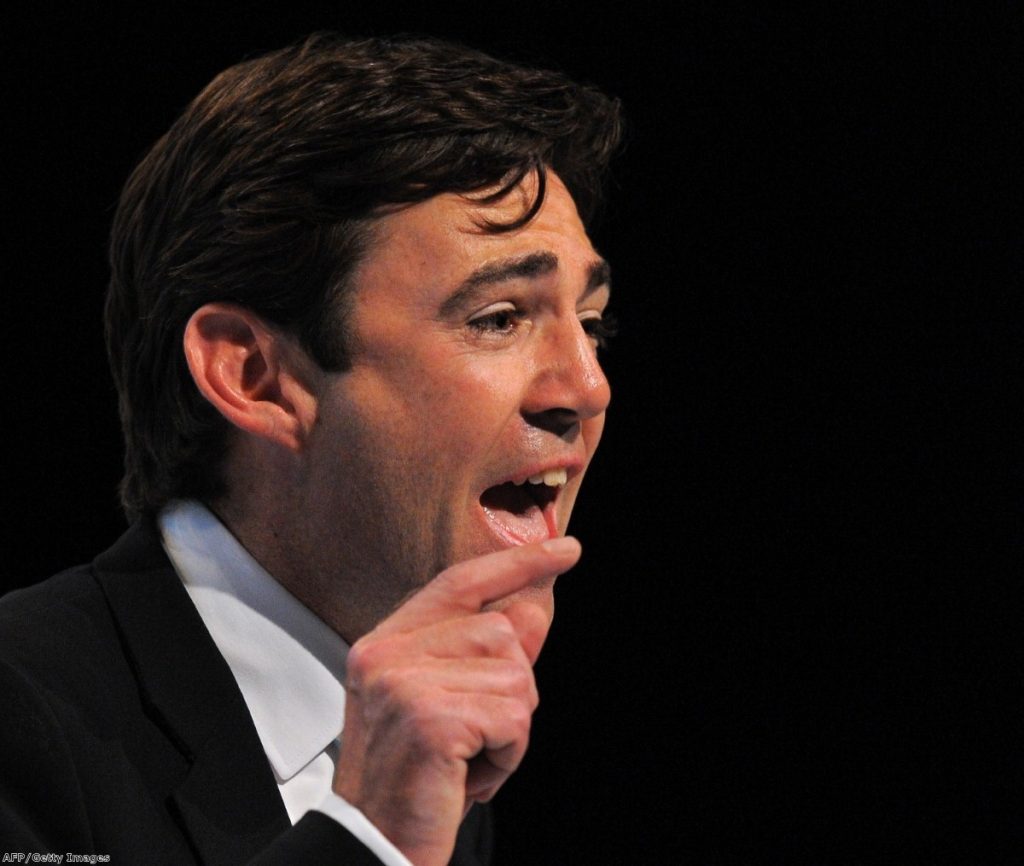Labour woos rebellious Lib Dems during dramatic NHS debate
By Alex Stevenson Follow @alex__stevenson and Ian Dunt Follow @IanDunt
Andy Burnham has used a dramatic and bad-tempered Commons debate to "develop an agreement" between Labour and Liberal Democrat MPs over the coalition's NHS reforms.
Labour MPs are set to take the unusual step of supporting a rebel Lib Dem amendment calling for the health and social care bill to be dropped.
"In supporting this amendment, this side of the House is offering no endorsement of the health policies of the coalition agreement," Mr Burnham warned, as he encouraged Labour MPs to back the Lib Dem rebels' plan.


"It is now sheer gut loyalty, political pride and the need to save face which leads this to the statute book.
"Time is running out for the NHS. Tonight we have a final chance to put it first and party politics second."
The shadow health secretary said the bill would pit "doctor against doctor, hospital against hospital".
Andrew Lansley, who was visibly irritated throughout the debate, said: "You'll recall Plato said 'empty vessels make the loudest sound'. [Burnham] is a study in this. As his arguments diminish his rhetoric becomes more strident."
After being asked what he knew about the health service, the health secretary appeared to lose his temper, saying: "The honourable gentleman says 'what do I know about the health service?'
"What do I know about the health service? I've been at that bench and this one for nine years talking about the health service.
"There may be many things in this House we can debate but I deeply resent any implication I don't care about the health service."
Today's debate is likely to be the last chance for the Commons to debate the bill, with Ed Miliband hoping enough Liberal Democrat MPs will have been unnerved by the lack of support from their own members over the weekend that they might be prepared to vote against the government.
Mr Burnham's appeal for cooperation with the Liberal Democrats marks a significant change of tone for Labour towards the Lib Dems, who have previously been criticised by the opposition for being complicit in the Conservatives' market-driven reform agenda.
It is not yet clear how many other Lib Dem backbenchers will join rebels Andrew George, Greg Mulholland, John Pugh, Adrian Sanders and David Ward.
Their amendment demands an "urgent summit" of key stakeholder organisations "to plan health reforms based on the coalition agreement".
It follows Lib Dem activists' equivocal stance at the party's spring conference this weekend. Delegates rejected a bid to oppose the legislation outright but defeated a motion welcoming the changes secured by party leader Nick Clegg and Shirley Williams.
Mr Mulholland said: "Pushing a bill through in any area, never mind in one so important as the NHS, with so many professional organisations and medical professionals opposed is not a sensible or acceptable way to make policy and it is time to get people round the table and find a different and acceptable way forward."
The health and social care bill's slow progress through parliament comes amid an ongoing battle over the transition risk register, a currently secret document detailing the government's assessment of the potential negative side-effects of its proposed changes.
Last week the government lost an appeal against an order from the freedom of information commissioner to release the register. It has yet to do so.
There is a chance Liberal Democrat peers will demand the Lords holds off from voting on the health and social care bill until the risk register is published.
The document has the potential to change the debate entirely and could offer a final opportunity to campaigners to stop the bill.












